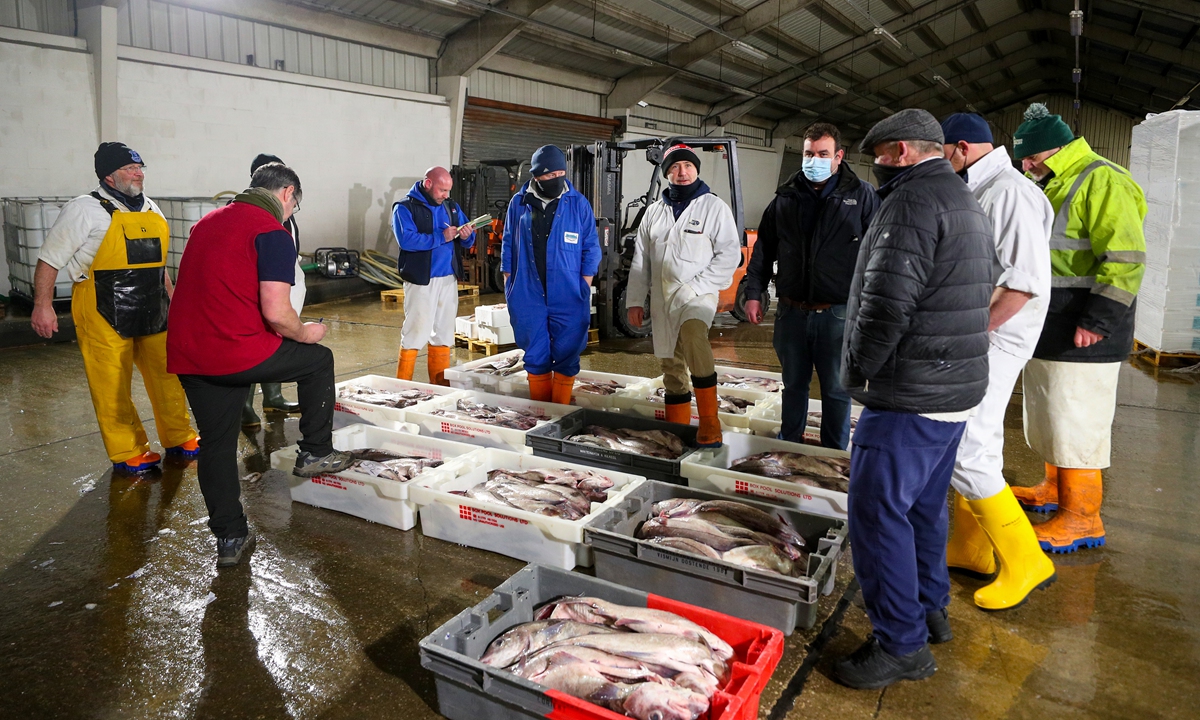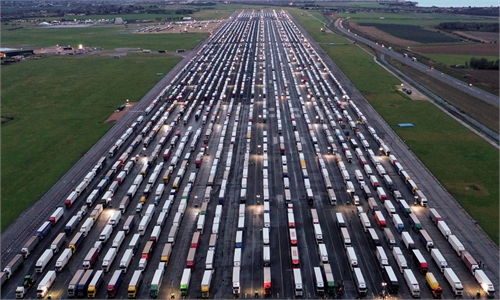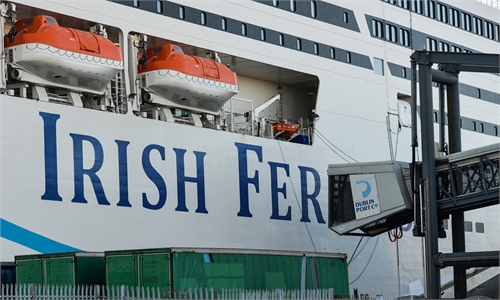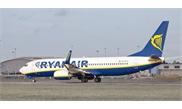Taxes, food health certificates: UK counts Brexit costs
Taxes, food certificates: UK counts Brexit costs
A tangle of post-Brexit paperwork, duties and taxes is disrupting commercial ties between Britain and the European Union that have often taken years to build, piling extra costs on small firms that can make cross-Channel trade unprofitable.
Changes since the UK's departure from the bloc's single market and customs union on January 1 have made it "commercially and practically impossible for us to continue actually shipping to the EU," laments cheesemaker Simon Spurrell. Owner of the Hartington Creamery, which produces crumbly, flavorful Stilton cheese, Spurrell must now include a food health certificate signed by a veterinarian with each order sent to the bloc.

"We may just have to abandon the EU market completely until both sides come to their senses," said Spurrell, who is now eyeing sales into North America to help fill the gap.
The food certificate, which applies also to meat and fish products, is not the only bitter-tasting financial consequence served up by Brexit - even though Britain struck a tariff-free trade deal with the EU.
British customers purchasing goods from the EU with a sale price of more than 135 pounds are in some cases having to pay so-called import value-added tax (VAT) of around 20 percent. They may have to also pay customs duties and higher courier charges. The result is that some EU-based companies, mainly small ones, have decided to stop selling products to buyers in Britain.
"It certainly isn't a tariff but nevertheless it's going to have an implication for UK customers and make goods from the EU more expensive," said Gary Rycroft, a partner at law firm Joseph A Jones & Co in Lancaster, northern England.
"In that sense, it's a protectionist policy because it's creating a barrier to trade.
"That's the reality of Brexit," the consumer affairs legal expert told AFP.
For businesses, there is also the headache of "rules of origin," bringing new charges levied on goods exported from the UK that have been made with imported materials.
Around 20 percent of small and medium-sized enterprises have suspended exports to the EU owing to the new rules.
Changes since the UK's departure from the bloc's single market and customs union on January 1 have made it "commercially and practically impossible for us to continue actually shipping to the EU," laments cheesemaker Simon Spurrell. Owner of the Hartington Creamery, which produces crumbly, flavorful Stilton cheese, Spurrell must now include a food health certificate signed by a veterinarian with each order sent to the bloc.

Market manager Alastair Ewen (third left) conducts an auction of fish brought in this morning at the docks in Fleetwood, Lancashire on January 28, 2021. Photo: VCG
Regardless of the package size, one slab of the geographically protected treat or a whole crate, the cost of the certificate is the same - 180 pounds ($247). A big price to pay for the creamery, which previously relied on EU customers for around one-fifth of online sales."We may just have to abandon the EU market completely until both sides come to their senses," said Spurrell, who is now eyeing sales into North America to help fill the gap.
The food certificate, which applies also to meat and fish products, is not the only bitter-tasting financial consequence served up by Brexit - even though Britain struck a tariff-free trade deal with the EU.
British customers purchasing goods from the EU with a sale price of more than 135 pounds are in some cases having to pay so-called import value-added tax (VAT) of around 20 percent. They may have to also pay customs duties and higher courier charges. The result is that some EU-based companies, mainly small ones, have decided to stop selling products to buyers in Britain.
"It certainly isn't a tariff but nevertheless it's going to have an implication for UK customers and make goods from the EU more expensive," said Gary Rycroft, a partner at law firm Joseph A Jones & Co in Lancaster, northern England.
"In that sense, it's a protectionist policy because it's creating a barrier to trade.
"That's the reality of Brexit," the consumer affairs legal expert told AFP.
For businesses, there is also the headache of "rules of origin," bringing new charges levied on goods exported from the UK that have been made with imported materials.
Around 20 percent of small and medium-sized enterprises have suspended exports to the EU owing to the new rules.



